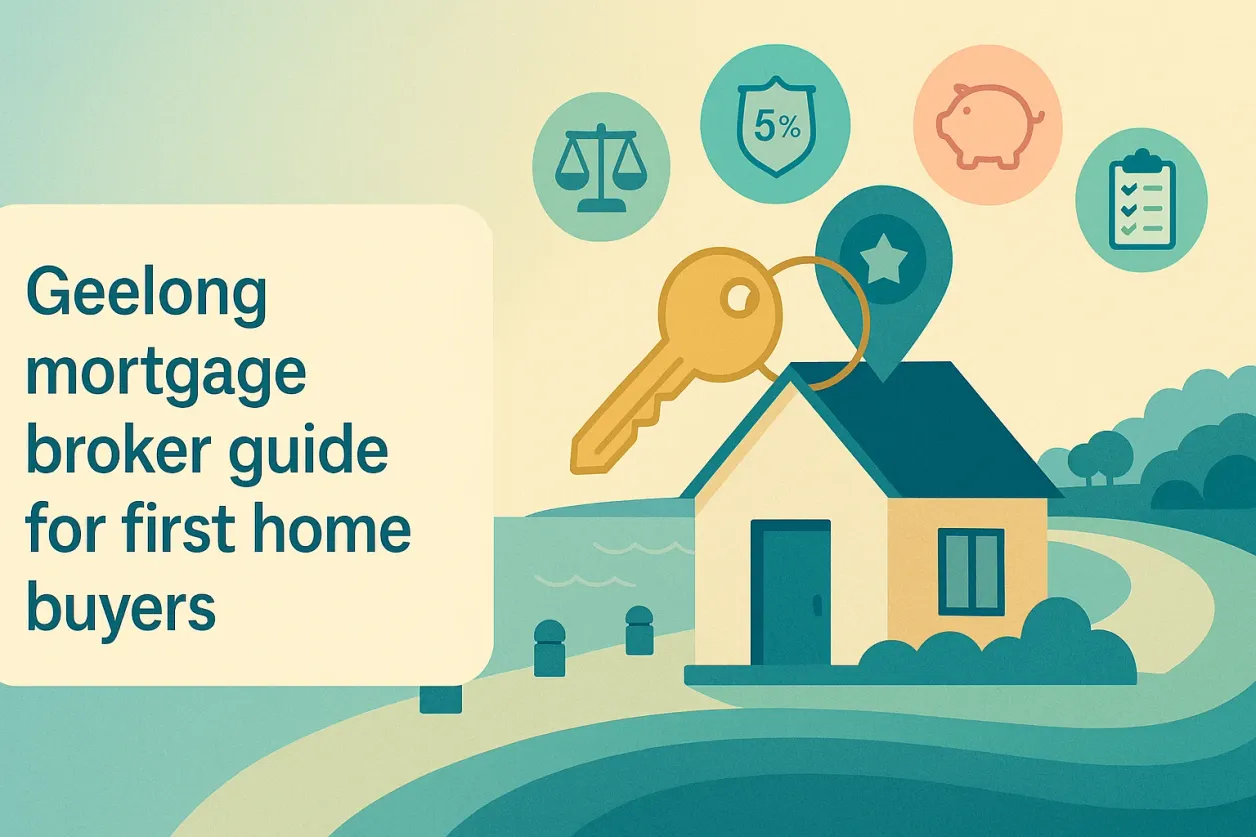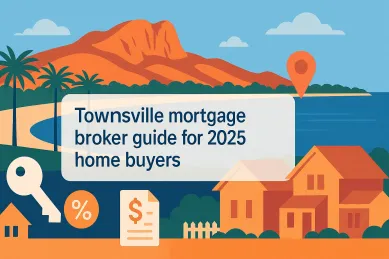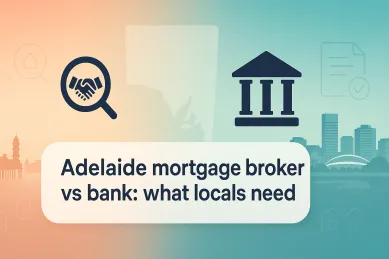Why first home buyers in Geelong benefit from a broker
Buying your first place is exciting, but the steps can feel complex. A geelong mortgage broker helps you compare lenders, unlock low deposit options, explain costs in plain language, and keep your application on track. They work for you, not any one bank, so they can weigh up interest rates, fees, policy quirks, and the fine print that often decides approvals. For Geelong buyers, local knowledge matters too. A broker who understands Belmont, Highton, Newcomb, Norlane, and the Surf Coast can help you set a realistic budget, anticipate valuation trends, and prepare for settlement timelines that match local market conditions.
A good broker will also map out deposit pathways, show you how to structure your application for serviceability, and keep an eye on the details lenders care about, such as spending patterns and credit conduct. When you are new to the process, that guidance can be the difference between back-and-forth requests and a clean approval.
Key Takeaway
A geelong mortgage broker brings lender choice, policy expertise, and local insight together, so first home buyers avoid missteps and move from pre-approval to keys with less stress.
First home buyer pathways in Victoria and nationally
Before you compare loans, understand the support that can shorten your timeline to buy.
First Home Owner Grant and Victorian stamp duty relief In Victoria, eligible first home buyers may receive the First Home Owner Grant for new homes, alongside separate duty relief for principal place of residence purchases, with an exemption up to a set threshold and a concession above that threshold. The State Revenue Office explains the details and eligibility rules, including how the duty exemption and concession work.
First Home Guarantee The First Home Guarantee helps eligible buyers purchase with a 5 percent deposit without paying Lenders Mortgage Insurance, because a federal guarantee covers part of the loan. This sits under the Home Guarantee Scheme and is administered by Housing Australia, with eligibility criteria and property price caps that vary by location.
What Lenders Mortgage Insurance actually is If you do not use a government guarantee or bring a 20 percent deposit, you will usually face Lenders Mortgage Insurance. LMI is a one-off cost that protects the lender rather than you, and it typically applies when your loan is more than 80 percent of the property value. Understanding LMI helps you compare the trade-off between saving longer and buying sooner.
How lenders check your borrowing power In addition to income and expenses, lenders assess your ability to repay at a higher test rate. Australia’s prudential regulator currently expects lenders to add a buffer of 3 percentage points to the actual rate when testing affordability. This buffer can materially change how much you can borrow and why a small rate change can affect approvals.
Key Takeaway
Combine state support, national guarantees, and a clear view of LMI and serviceability. A geelong mortgage broker can stitch these pieces together so your deposit and borrowing power work in sync.
What a Geelong broker does from hello to settlement
Discovery and lending strategy Your broker will start by clarifying your goal, budget, and time frame. They will calculate borrowing capacity under different scenarios, such as fixed, variable, or split loans, and stress test your plan using the lender buffer. They will explain how your daily spending, credit cards, or buy now pay later accounts can shape the outcome. The aim is a clean pathway to pre-approval with a lender whose policy fits your profile.
Document readiness and pre-approval The fastest approvals come from complete applications. Government consumer guidance outlines the typical paperwork, from identification to income evidence and liabilities, and serves as a useful checklist to stay organised. A broker will package your documents to match the target lender’s format, which reduces back-and-forth and improves timelines.
Property selection and contract timing When you start inspecting homes, your broker will coordinate with your conveyancer and buyer’s agent or selling agent. If you are bidding at auction, they will help you set a firm ceiling that fits your pre-approval and buffer. For private sales, they can liaise with the lender and valuer so your finance clause and settlement date make sense.
Valuation outcomes and policy quirks If a valuation comes in short, a broker can quickly model options, such as topping up the deposit, using a different valuer via a second lender, or adjusting loan-to-value ratio to manage LMI. Policy differences are real. One lender may shade overtime income more heavily or treat HECS debt differently. That nuance can decide your approval.
From unconditional approval to settlement After you achieve formal approval, your broker helps with loan documents, settlement bookings, and final checks like building insurance. If you are using a grant or guarantee, they will coordinate the extra forms and timing so funds are ready for settlement day.
Key Takeaway
Process beats luck. With the right sequence of strategy, documents, and policy fit, your approval is about preparation rather than chance.
Low deposit paths for first home buyers
Path 1 - 20 percent deposit, no LMI This is the traditional approach. You avoid LMI and usually access sharper rates. The trade-off is time. In a rising market, the extra months of saving can outpace the benefit.
Path 2 - 10 percent deposit with LMI You enter the market sooner and pay an LMI premium. A broker can compare lenders because LMI costs and capitalisation rules vary. It can still stack up if price growth is outpacing your savings.
Path 3 - 5 percent deposit under the First Home Guarantee If eligible, you buy with 5 percent, avoid LMI, and keep cash for moving costs or a small renovation. Be mindful of property caps, location rules, and the need for genuine savings.
Path 4 - Gifted funds or a parental guarantee Some lenders accept a gift with a statutory declaration. Others allow guarantor loans where a parent offers equity in their home as additional security. This can eliminate LMI and increase your borrowing power, but the guarantor takes on risk. A broker will talk through release plans so the guarantee is only temporary.
Path 5 - Off-the-plan and new build options If you are buying new, you may be eligible for the state grant and you will need a broker comfortable with progress payments for construction loans or sunset clauses on off-the-plan contracts. Your broker can also explain how valuations at completion are handled and how to set a buffer for fixtures and variations.
How interest rates, buffers, and your budget connect
Most first home buyers focus on headline rates. Lenders will test your repayment at a higher serviceability rate using the buffer in place at the time of assessment. That is why your borrowing power can shift even if advertised rates are steady. The regulator currently expects lenders to maintain a 3 percent buffer, which is still the operative setting. If cash rates move, your living expenses and credit conduct matter even more. A geelong mortgage broker will model different scenarios so you can choose a comfortable ceiling.
Key Takeaway
Do not plan around the cheapest headline rate alone. Plan around the assessment rate and your real cash flow so you stay comfortable after settlement.
Step-by-step timeline for Geelong first home buyers
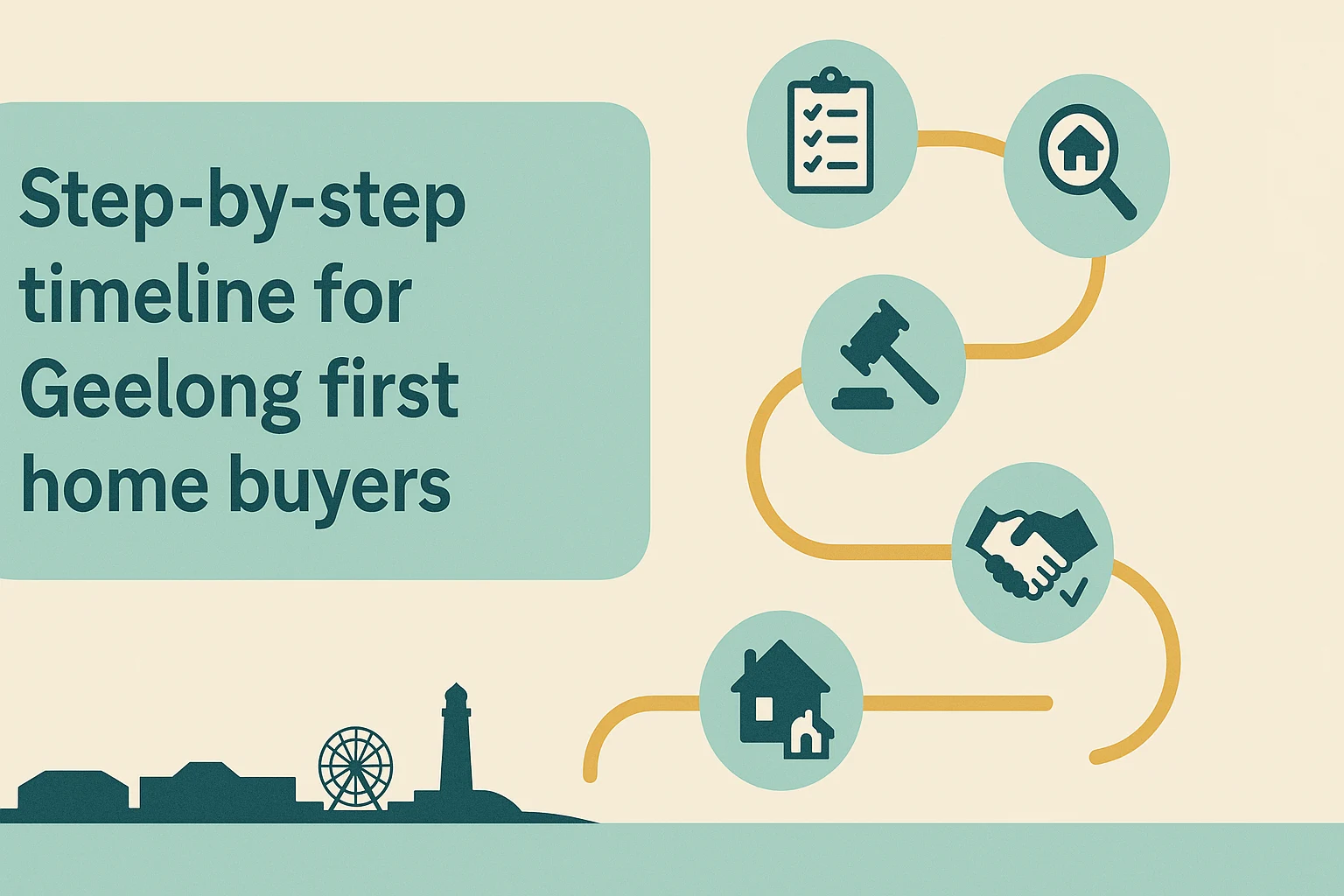
-
Two to three months before you buy Clean up spending, reduce limit-only credit cards, and get a broker-led borrowing capacity check under different lenders.
-
Four to six weeks before searching seriously Gather documents, lodge a pre-approval, and clarify which grants or guarantees you might use.
-
Active search Attend inspections, request section 32 statements early, and keep your broker updated. If you plan to bid at auction, confirm your lender’s valuation process and settlement timeframe.
-
Offer or auction For private sales, include a finance clause that fits lender timelines. For auctions, only bid within your pre-approval envelope and leave a buffer for costs.
-
Unconditional approval and settlement Sign loan docs, set up building insurance, and book settlement. If you are using state duty concessions or the First Home Owner Grant, your broker and conveyancer will ensure the forms are lodged in sequence with your lender and the State Revenue Office.
Your essential home loan documents
A complete file helps your approval move faster. Use this quick checklist and ask your broker for lender-specific templates.
| Document category | What most lenders ask for | Tips to speed things up | Who provides it | When to collect |
|---|---|---|---|---|
| Identification | Passport and driver licence | Ensure names match across IDs | You | Before pre-approval |
| Income - salary | Two recent payslips and latest group certificate or ATO notice | Include employment contract if new to role | You and employer | Before pre-approval |
| Income - other | Rental statements, dividends, government income | Provide full statements, not screenshots | You or agent | Before pre-approval |
| Banking history | Three months of transaction and savings statements | Avoid large unexplained transfers | You | Immediately before submission |
| Liabilities | Statements for any loans, credit cards, BNPL, HECS | Consider reducing unused card limits | You | Immediately before submission |
| Property | Contract of sale, section 32, rate notice, insurance | Send signed contract to broker same day | Agent, conveyancer, council | As soon as you sign |
| Grants or guarantees | Scheme application forms or declaration | Confirm eligibility cut-offs early | Broker and you | With the application |
Government consumer guidance on home loans is also useful as a baseline checklist when you prepare your file.
Suburbs and rates - what actually changes by location
Buyers often ask which Geelong suburbs have the lowest mortgage rates. Interest rates are set by lenders and your risk profile, not by suburb. What does vary by location is property price, local amenities, and valuation evidence. In some areas, comparable sales support higher valuations, which can reduce your loan-to-value ratio and the chance of LMI. A local broker can help you weigh trade-offs like travel time, school zones, and renovation potential so you focus on total cost of ownership rather than rate alone.
Broker panels, bank specials, and policy fit
Big banks, regional banks, and non-banks often run specials for a limited time. Some offers trade a slightly lower rate for a higher fee or a tighter policy. A geelong mortgage broker compares across a wide panel and reads the policy footnotes. If you are a casual worker, have overtime income, or receive allowances, these details matter. The right lender for a teacher in Highton might not be the right lender for a nurse in Geelong West with shift penalties. Policy fit is how you move from maybe to yes.
Fixed, variable, and split loans explained
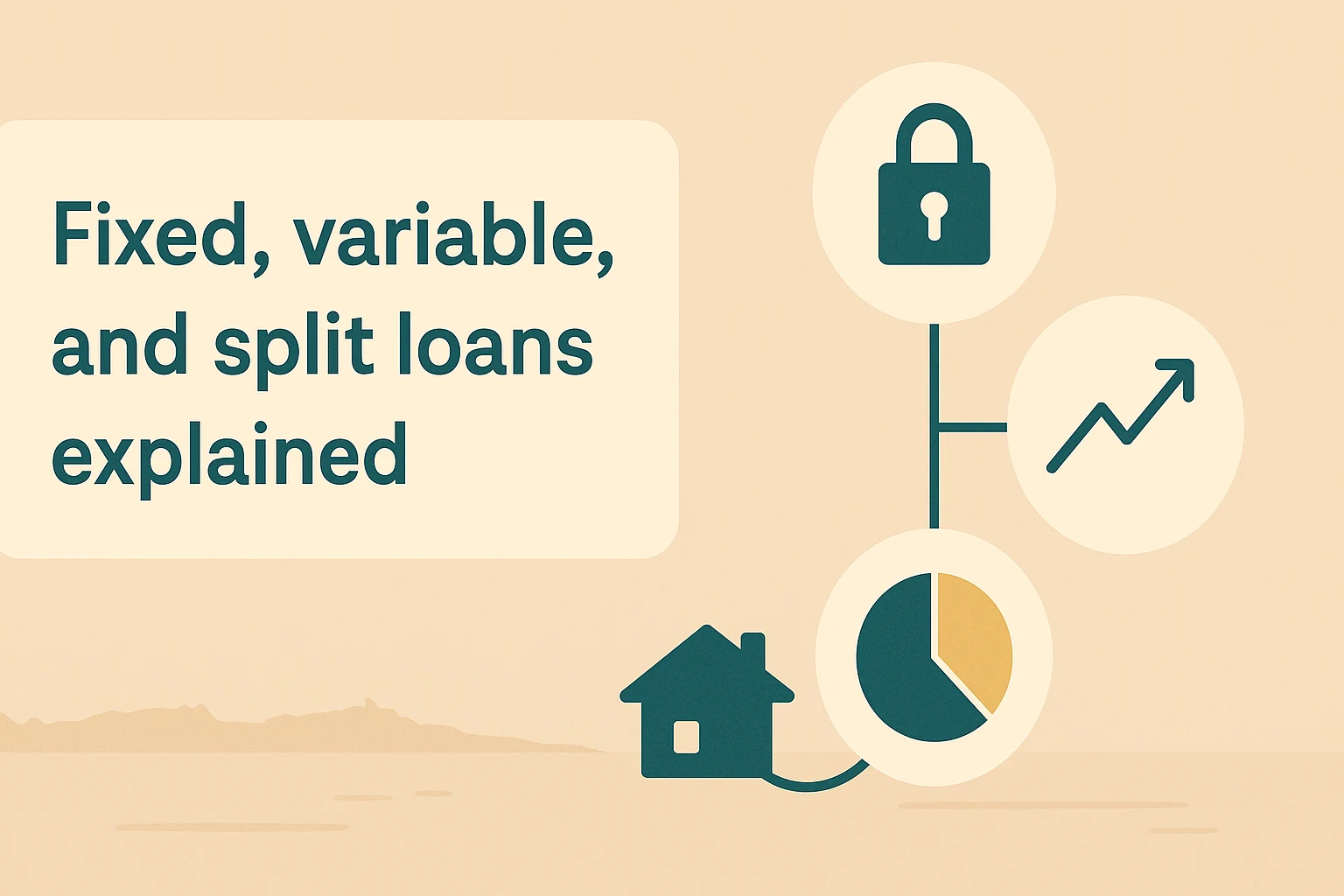
- Fixed rate loans give payment certainty for a term, but you lose flexibility and may face break costs if you repay early.
- Variable rate loans move with the market and usually offer offset accounts and unlimited extra repayments.
- Split loans combine both, which can balance certainty with flexibility.
Your broker will model repayments under each choice and explain features like offset, redraw, package fees, and the impact of comparison rates. If you plan to renovate soon after purchase, flexibility can trump a minor rate difference.
Fees and the real cost of buying
Budget for these line items alongside your deposit:
- State transfer duty after exemptions or concessions
- Lender fees and, if applicable, LMI
- Conveyancer or solicitor
- Building and pest reports
- Moving costs and immediate maintenance
- Insurance from the day you sign loan documents
The duty rules and grant eligibility differ by property type and value. The State Revenue Office maintains the official guidance and calculators for Victoria, which your broker and conveyancer will reference during your contract review.
Common approval roadblocks and how to sidestep them
- Unstable employment history Probation periods and frequent job changes can be fine if explained well.
- High discretionary spending Trim non-essential spending three months before you apply and keep it steady.
- Undisclosed liabilities Lenders see your credit file. Disclose everything to your broker so they can position it.
- Valuation shortfalls Have a backup plan such as a slightly higher deposit, a different valuer via another lender, or a smaller purchase price target.
- Inconsistent savings records Many lenders want evidence of genuine savings. Set up an automatic transfer and avoid dipping into that account.
Broker vs bank for first home buyers
Going direct to a bank can be simple if you are a perfect fit for that bank’s policy. If you are a first home buyer with budding credit history, a broker can widen your options. They will compare policy across a panel, model LMI with and without the First Home Guarantee, and negotiate packaging. Because brokers see the fine print daily, they can tell you which lenders count overtime, which shade bonuses, and which accept probation. The goal is not to find the lender with the lowest advertised rate. It is to find the lender that will actually approve you on fair terms.
Key Takeaway
Brokers give you access to many lenders, but the bigger value is policy fit and structure. That is what gets approvals across the line for first home buyers.
Refinancing later - set up to save
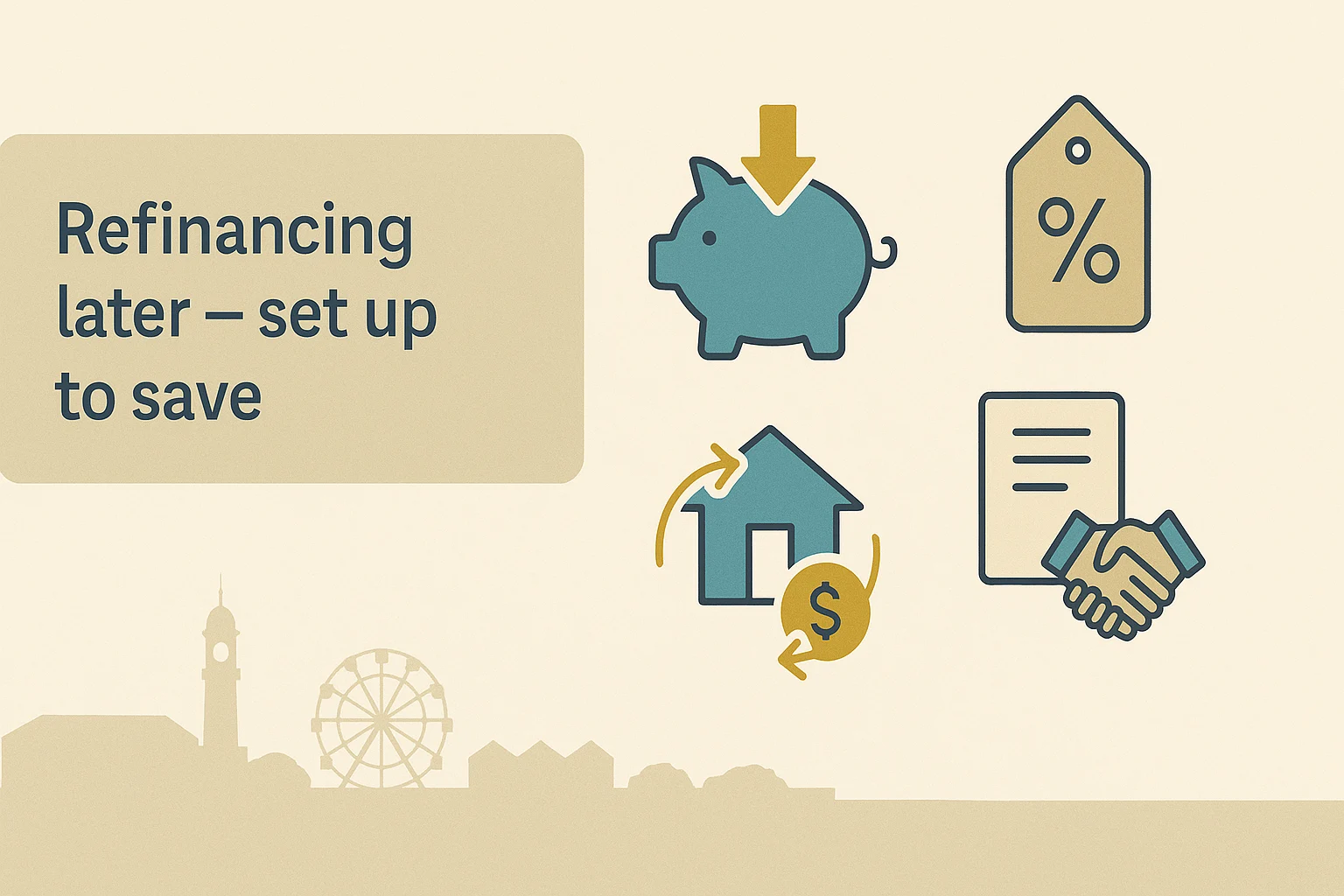
Even though this guide is for first purchase, plan your loan so future refinancing is easy. Keep your statements tidy, maintain an offset balance when you can, and avoid unnecessary credit applications. If rates fall or your income grows, a refinance could cut monthly repayments, shorten your term, or fund an upgrade. Your broker will tell you when a change is worth it after accounting for fees.
First home buyer FAQ for Geelong
Who is the best mortgage broker in Geelong for first home buyers?
There is no one best for every buyer. Pick a geelong mortgage broker with strong first home buyer experience, access to a broad lender panel, and clear communication. Ask how they handle the First Home Guarantee and how many lenders they compare for your scenario.
Can I get a home loan in Geelong with a low deposit?
Yes. Options include a 10 percent deposit with LMI or 5 percent with the First Home Guarantee if eligible. A broker will check your eligibility and show trade-offs between buying sooner and paying LMI.
Which Geelong suburbs have the lowest mortgage rates?
Rates do not change by suburb. Lenders set rates by product and risk profile. Choose suburbs by lifestyle, price, and valuation strength rather than expecting a rate difference.
How do I refinance my home loan in Geelong?
Ask a broker for a rate and features review, provide updated documents, and order a valuation if required. Factor in discharge and settlement fees, then decide if the savings justify a switch.
Mortgage brokers in Highton, Geelong with best reviews
Look for verified reviews and ask for case studies with buyers like you. Reviews are useful, but policy knowledge and frequent communication during your purchase matter more.
Who can help with investment property loans in Geelong?
Many brokers handle both owner-occupier and investment loans. If your first purchase might convert to an investment later, ask about interest-only terms, offset access, and tax-aware structures. Get separate tax advice as well.
Is it better to use a mortgage broker or bank in Geelong?
If your profile is straightforward and matches a specific bank’s policy, going direct can be fine. If you want more choice, policy guidance, and support with grants or guarantees, a broker is usually more flexible.
Find a mortgage broker in Belmont, Geelong for refinancing
Search locally and compare experience, lender panel depth, and responsiveness. Shortlist two or three and ask each for a side-by-side comparison tailored to your situation.
Can a mortgage broker in Geelong help with bad credit loans?
Specialist lenders exist for impaired credit, but rates and fees are higher. A broker can map a repair plan to move you toward mainstream pricing when your conduct improves.
What documents do I need for a home loan in Geelong?
Expect identification, income evidence, bank statements, and details of liabilities. The Moneysmart home loan guide outlines the basics and is a good starting point.
Putting it all together for your first purchase
Your first home should fit your life and your budget. Start with borrowing capacity and deposit strategies, add the right pathway for LMI or the First Home Guarantee, and build a clean application file so pre-approval is quick. Keep expectations realistic on suburbs and valuations, and rely on your broker to watch policy changes and lender timelines. When everything lines up, you can shift focus from paperwork to picking the right street and planning move-in day.
If you want a personalised path from pre-approval to settlement, reach out to Sashin Ramlakan, a mobile geelong mortgage broker with construction, refinancing, and first home buyer expertise. Start your conversation and get tailored guidance for your budget, suburb shortlist, and timeline on the official Resolve Finance Geelong page: Resolve Finance - Mortgage Broker in Geelong.
